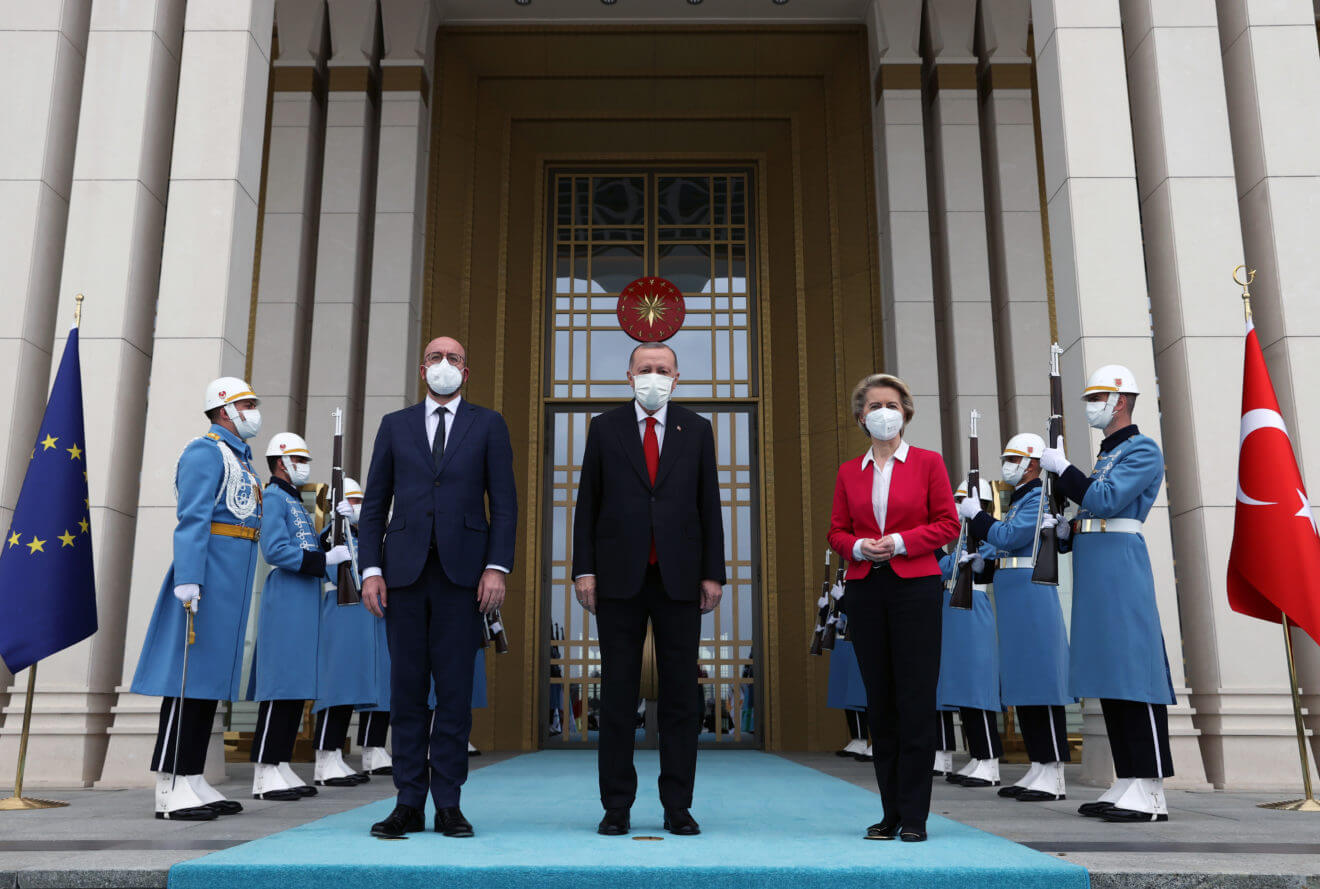The European Union (EU) at its Council meeting in Brussels last week urged Turkey to restore ties with the bloc after a year of conflict over the Eastern Mediterranean.
As per news reports, the Union leaders, during the Council meeting, discussed relations with Turkey and expressed their willingness to engage in dialogue on matters of common interest with Ankara in a phased manner. The Council also discussed the modernisation of the EU-Turkey Customs Union and reviewed the current obstacles in implementing it, as well as the topic of high-level dialogue with Turkey on migration, public health, climate, counterterrorism, and regional issues. In addition, the leaders talked about the EU’s migration policy and decided to extend aid worth billions to Turkey to support Syrian refugees.
Regarding Cyprus, the leaders recalled their previous resolutions while expressing commitment to a comprehensive settlement based on a “bicommunal, bizonal federation with political equality” and within the framework of the United Nations Security Council (UNSC) resolutions.
These incentives come against the backdrop of frayed ties between Turkey and the EU and the latter’s effort to convince the President of Turkey, Recep Tayyip Erdoğan, to continue de-escalation in the Eastern Mediterranean region. Turkey’s candidature for EU membership has also been on halt amid these tensions.
The Union uses Turkey as a shield against illegal migration into Europe via Greece. However, last year, Turkey refused to stop migrants from crossing its border into Greece and allowed Turkish research ships to trespass into waters held by Greece and Cyprus. In addition, Turkey pulled out of the Istanbul Convention, which combats violence against women and children, sparking an international outcry. Turkey has also been accused of a crackdown on fundamental rights and targeting human rights defenders and political opposition.
Such issues remain a cause of concern for the EU officials, who have advised Turkey to uphold the rule of law and fundamental rights, as these determine the EU-Turkey relationship.
Furthermore, Turkey has put forth its own set of demands, including an amended 2016 migration agreement, the renewal of Turkey’s customs unions with the EU, and relaxing visa rules for Turkish travellers. Under the 2016 EU-Turkey Migration Agreement, Turkey prevents refugees from entering the bloc. The Union, in return, offers billions of Euros to Turkey for Syrian refugees and other incentives.
In a meeting with Erdoğan earlier this year, the President of the European Council, Charles Michel, and President of the European Commission, Ursula von der Leyen, conveyed that the future of the EU-Turkey relationship depended on Turkey’s human rights record and the rule of law. The Union officials also indicated a safe and secure environment for Greece and Cyprus as another prerequisite for furthering ties. The meeting came amid Turkey’s reconciliatory measures with the Union and de-escalation with Greece over the maritime claims. In the same meeting, the President of the European Commission promised to continue providing Turkey with aid for the refugees as long as it prevented migrants from entering Greece.
Erdogan’s top aide and chief adviser, Ibrahim Kalin, said: “(Erdoğan) emphasised that the refugee problem should be handled with a sense of shared responsibility and (he) recalled the need for an urgent renewal of the migration agreement to guard against instability and a humanitarian crisis by a new refugee wave in the region.”
Additionally, as part of the latest deal, the EU expects Turkey to continue contributing positively to regional conflicts involving Libya, Syria, and Nagorno-Karabakh. For Cyprus, the Union remains committed to a “bi-communal, bi-zonal” solution as the entire island belongs to the bloc. In a surprising move, Turkey agreed to a two-state solution for the decades-long dispute on the island of Cyprus and decided to join negotiations. The Cyprus dispute started in 1974 when Turkey occupied a part of the island and Greece took over the rest.
In its concluding remarks on Turkey, the Council stated: “The targeting of political parties, human rights defenders and media represents major setbacks for human rights and runs counter to Turkey’s obligations to respect democracy, the rule of law and women’s rights.”
EU Hopes to Restore Ties With Turkey After a Year of Conflict
After a year of conflict, the European Union hopes to improve ties with Turkey as it de-escalates tensions with the bloc in the Eastern Mediterranean region.
June 29, 2021

SOURCE: POLITICO
